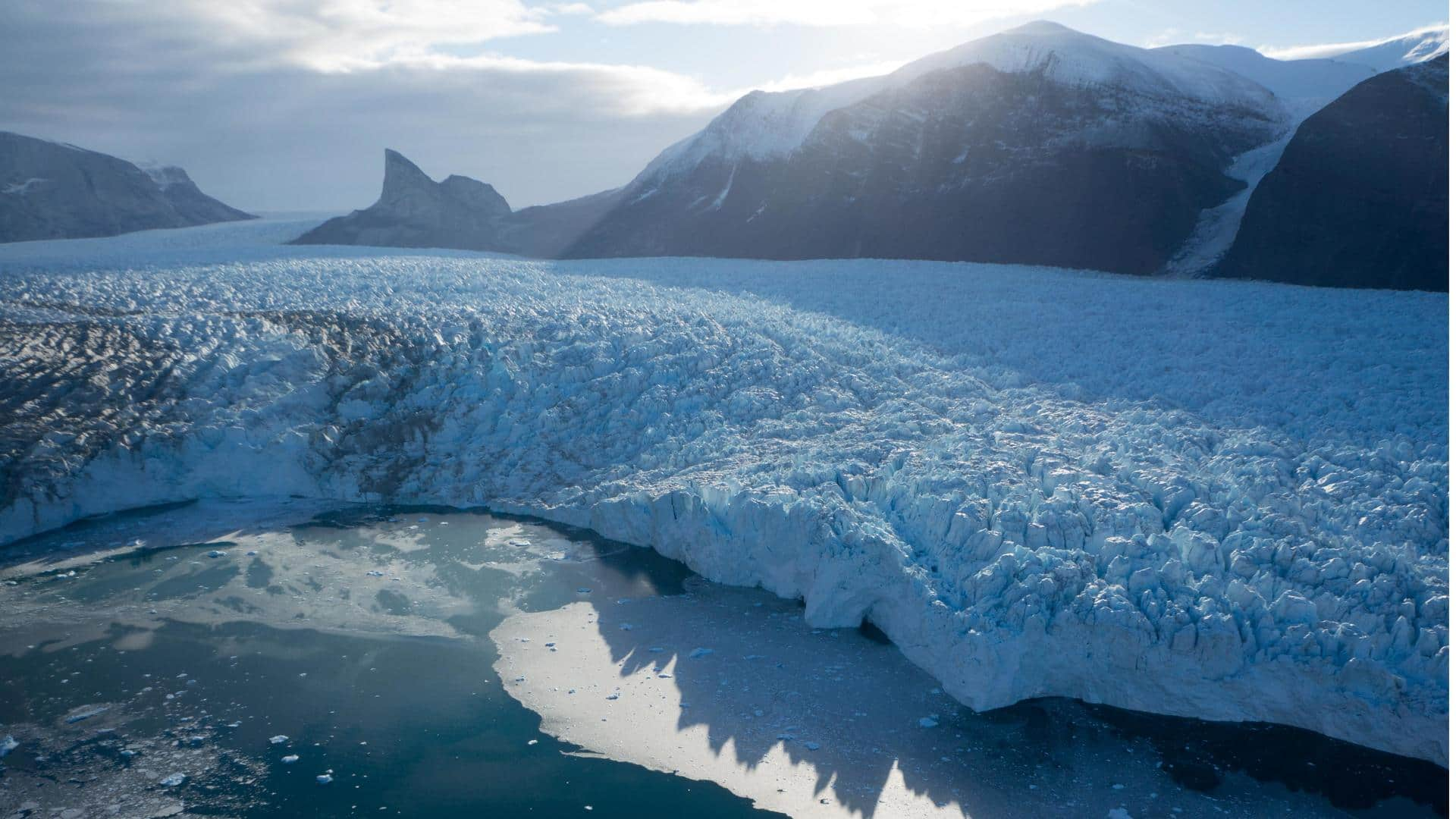
Himalayan glaciers could disappear by 2100 if climate change continues
What's the story
Scientists have found that ice loss from the world's highest mountains is happening faster due to rising temperatures. By the end of the century, these peaks could lose up to 80% of their volume.
As per Nepal's International Centre for Integrated Mountain Development, glaciers in the Hindu Kush and Himalayan mountains melted 65% faster between 2010 to 2019 compared to the previous decade.
Context
Why does this story matter?
The latest report adds to the existing evidence which points to the devastating impacts of global warming.
What's worrying is that the ice loss from the mountain ranges is happening at a much faster pace than previously considered.
The effects of rising temperatures will have far-reaching impacts, from potentially disrupting the livelihood of thousands to impacting wildlife.
Study
The study assessed an area spanning 4.14 million square kilometers
The study assessed the impact of an area spanning about 4.14 million square kilometers in the Hindu Kush and Himalayas, starting from Afghanistan to Myanmar.
In 2019, the same research group showed if average global warming was limited to 1.5 degrees Celsius compared to pre-industrial levels, even in an optimistic case, this region would lose at least one-third of its glaciers.
Official report
'Himalayan glaciers are melting rapidly'
"Things are happening quickly," said Miriam Jackson, a researcher from the International Centre for Integrated Mountain Development and one of the authors of the report.
"Just from two decades ago to the last decade, there's been quite big changes. And I think that's a surprise for lots of people, that things are just happening so fast," added Jackson.
Impact
Melting glaciers pose a risk to millions in these regions
The effect of melting glaciers on people inhabiting the Hindu Kush and Himalayan regions would be drastic.
It is estimated that 240 million people occupy these mountain ranges and another 1.65 billion live downstream.
The people here rely on glacial waters for maintaining their farmlands and livestock, among other things.
Melting glaciers would increase the risk of natural hazards like floods, landslides, and avalanches.
Endangerment
Warming climate also poses a threat to unique wildlife species
Not just that, the unique wildlife species found in these regions would face the consequences of climate warming.
According to the report, 14 species of butterflies have gone extinct in the Murree Hills of Pakistan.
The findings highlight that endemic frog species are among the most impacted by climate change. The frogs encounter breeding problems and show developmental deformities.
Official words
'We need leaders to act now to prevent catastrophe'
"The glaciers of the Hindu Kush Himalaya are a major component of the Earth system," said Izabella Koziell, deputy director general of International Centre for Integrated Mountain Development.
"With two billion people in Asia reliant on the water that glaciers and snow here hold, the consequences of losing this cryosphere are too vast to contemplate. We need leaders to act now to prevent catastrophe."